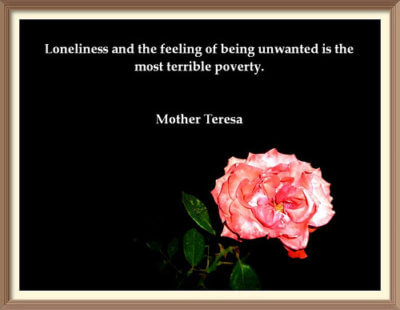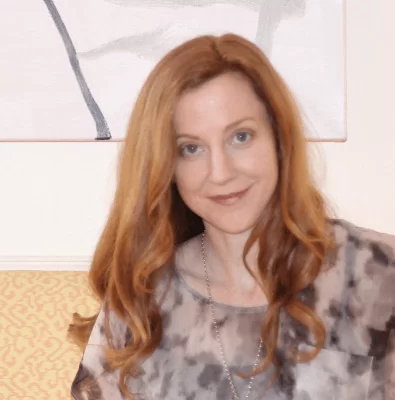Why Do I Have a Fear of Relationships and Love?

By: Valeria P.
Andrea M. Darcy
Consciously, you had your reasons worked out. You aren’t made to be monogamous, you don’t believe in love, you don’t have the time, you can’t find someone as smart as you…..
And then one day you realise that you are terribly lonely.
And behind all the excuses, and all the failed attempts at love, you actually have a fear of relationships.
The next question then becomes, why me?
[Not sure you do or don’t have a fear of intimacy? Read our popular article, “7 Surprising Reasons You Fear Intimacy”.]
Where does a fear of relationships come from?
It’s rarely our well-thought out explanations for avoiding relationships that are our true reasons. For these you need to dive into your unconscious mind, where you will find the set of assumptions you have made about yourself, others, and the world known as your core beliefs.
Unless we take the time to discover and change these hidden beliefs, they quietly dictate the way we live our lives and each decision we make. If you avoid relationships or sabotage any you attempt, your core beliefs might sound something like:
- love is dangerous
- I don’t need anybody
- It’s better to avoid love because it hurts
- I don’t deserve love.
But how did you end up with a set of core beliefs like this?
Why do you fear relationships and love?

By: Iqbal Osman
We are not born terrified of love. You don’t see a newborn baby backing off when it is put into a mother’s arms.
A fear of connection, care, and love is something we learned. And it tends to goes back to childhood experiences that essentially programmed us to shut down to such things.
Yes, in some cases, it might just be a recent bad breakup that has you afraid of letting someone else in. We do need time to heal. But if this is a pattern in your life, with relationships always going wrong and leaving you shattered, then it is still likely childhood issues at play.
How do past experiences lead to fear of relationships?
For some of us, it is an actual trauma in the past. This might be sexual abuse, physical abuse, the loss of a loved one, or being abandoned or neglected.
Trauma causes a child to feel so unsafe in the world he or she learns defensive behaviours, like hiding their true thoughts and feelings and always being on the lookout for danger.
These defensive behaviours might help you survive the rest of your childhood. But unless you seek support to work through your trauma, they also leave you more likely to grow up to be an adult out of touch with yourself, who sees many things as ‘threats’ to protect yourself against. This includes love and intimacy.
But I didn’t experience trauma. So why am I afraid of relationships?
Attachment theory is an area of psychology that has found that for a child to grow up into a healthy adult, he or she needs to be able to trust at least one adult to love and care for them no matter what, helping them feel safe and comforted if they are distressed.
A lack of attachment means we don’t complete important parts of psychological development. These parts are known as bonding and separation.
Bonding is when as a child you develop a sense that you can trust others. It hopefully starts at birth, and involves being nurtured and held and encouraged.
Separation means that by about aged three you are ready to physically and emotionally separate from your primary caretaker with the confidence that the world is a safe place and you are strong enough to navigate it.
Without bonding or healthy separation, the child will grow up into an adult with troubles trusting other adults to love and care for them, called ‘attachment issues’. They are also more likely to develop a personality disorder.
What sorts of parenting leaves you with attachment issues?
Let’s look at a few examples of parenting that can leave a child with attachment issues.
Unreliable parenting happens when a parent is moody and inconsistent. Perhaps they were suffering from extreme stress, mental illness, or addiction, leaving them mentally and emotionally unavailable. The child does not know if or when a parent will be supportive. They often resort to taking care of and pleasing the parent, burying any of their emotions that are not peace-keeping.
Unreliable parenting can see you grow up to have ‘anxious attachment’ in relationships. You want love, but the anxiety it causes you results in things like a push-pull pattern or avoiding relationships entirely.
Critical, controlling, and shaming parents can be very intolerant of their children having different ideas and feelings than them. This can look like such feedback as ‘don’t be a baby’, ‘big boys don’t cry’, ‘only bad children get angry’, ‘it’s hard for me to love you when you behave so badly’. You might learn to hide anything you perceive as ‘weak’ within yourself.
Critical and controlling parenting can leave you an adult keeping everyone at arm’s length over allowing them close enough to see that you are not perfect. Or perhaps you have become the criticiser, so hard on yourself and others nobody can get close. This is called the ‘avoidant attachment’.
As you can see, parenting that leads to attachment issues rotates around a child feeling rejected or punished for wanting love and attention, instead of accepted and loved no matter what they think and feel.
I understand now why I have a fear of relationships. But what do I do?
A fear of relationships and love tends to be deep-rooted, and be connected to a fear that love hurts. So there is no ‘quick fix’ to changing it. On the other hand, with a commitment to self-development and leaving your comfort zone, you can and will see real improvements.
Self-help can be a great start. Reading articles like this, books about love and intimacy, or going to workshops and support groups is useful. But many people find that to break their deeply entrenched patterns of pushing others away they need professional support.
Nowadays there are talk therapies especially geared to help you overcome your fear of relationships or difficulty allowing love. Read our article on “Types of Therapy that Help You Find a Relationship” for more information.
Harley Therapy connects you with experienced and registered therapists in central London and now also across England. Not in the UK? Online therapy is now proven to be effective.
Would you like to ask a question about fear of relationships? Or have an experience about fearing love you want to share with other readers? Use the public comment box below.
 Andrea M. Darcy is a lifestyle and wellbeing writer as well as a mentor who often writes about relationships. Find her on @am_darcy
Andrea M. Darcy is a lifestyle and wellbeing writer as well as a mentor who often writes about relationships. Find her on @am_darcy






Damn this is me to the T. You just provided me with so much insight. It’s a shame you guys are UK based as I am in Canada.
I went from being very codependent to now completely emotionally unavailable. I used to always date manipulators and players, and the last one played me so hard I finally cracked. I dont date those guys anymore, but I’ve gone to the other extreme and I am now extremely counterdependent. I am very independent and nowhere near as insecure as I used to be (my experiences have turned me into an assertive woman who doesnt tolerate disrespect to say the least).
Yet now I suffer from what I suspect is PTSD. I am extremely hypervigilant and avoid all closeness. I claim non-monogamy and sabotage any attempt at closeness. I am naturally attracted to men as unavailable as me, in a very weird way feeling more comfortable in those kind of “relationships” than with people who are open for further. I just see love as painful and people as scary. I am always looking for the first sign of danger so I can jump ship. I have no idea what’s a legitimate threat and what is just me projecting my baggage, so I just tend to steer clear from getting too close to anyone to begin with.
It is extremely stressful. I used to give my trust away unwisely, and I have now learned not everyone deserves access to the most intimate parts of me. Unfortunately now I don’t trust my own perceptions of what is and isn’t a safe person making me an overly private and closed-off person.
I know i need some professional help to tackle these issues but honestly Canadian therapy is expensive and I’m not down to spend money on a therapist that has no idea how to help me and will just further jade me on that most therapists suck. I’ve already spent over $1000 on shitty therapy that did nothing for me. Im not made out of money.
Hi Vee, thanks for all this brave sharing. You have hit on a lot of truths about what it’s like to survive either childhood trauma or a high level of Adverse Childhood Experiences (ACEs). It’s not just that we don’t trust others. We don’t trust OURSELVES. And that’s what truly causes the most troubles. We are always lost at sea, creating fake personas, causing ourselves more and more more problems. We should be our own best friend but somehow become our own worst enemy. And then we try therapy and it never seems to work out. Every therapist is ‘terrible’. But here’s the thing. If you don’t trust anyone, and don’t trust yourself, how do you expect a therapist to be such a magical perfect being you suddenly trust him or her? A therapist is unfortunately a human. The truth is that if you have trust issues, you should pretty much expect NOT to like or trust your therapist at first. If you have this expectation you will just create another cycle of disappointment and fury for yourself. What if you looked for someone who you could GROW to trust? Who you could see that, despite their imperfections, was a good person? Maybe kind of like…. dare we say it… you. Because what therapy offers is a chance to finally try trusting and let yourself be that good open trusting person beneath the crust you’ve created. As for Canadian therapists being the problem, well I’m afraid not. This is being written by a Canadian. And I’ve tried therapists in both countries. It’s never about the country, or the place, it’s about you, and putting in some effort to find a therapist you have a tiny click with and finding the courage to grow that click through some ups and downs. If you were going to invest in therapy again, you might want to look into compassion based therapy and schema therapy. A round of CBT would also help with the negative thought patterns. If you have an exact trauma behind all this, EMDR is something to try. But most of all remember therapy is a relationship. Read our articles on how to actually find a good therapist. A book recommendation here is ‘Counterdependency – The Flight From Intimacy” by the Weinholds. It’s written very clearly and it’s super powerful and offers hope.
This article helped out my feelings into words. It’s nice to know I’m not alone. I’m in my early twenties with a huge fear of intimacy and romance. Every time a person comes into my life with romantic intentions, I quickly remove them from my life. I gave it a try once about a year ago with someone who liked me but the second they gave me a peck on the lips, I ended it the following days cause I was feeling physically ill over the stress of it all. And now, a coworker is very forward in wanting to date me. We’ve been on two dates and I’m already physically sick from the stress. Every instinct is telling me to push him away before he tries to touch or kiss me. I’m tired of being this way and glad I came across your article so I could see some of it written into words and connect with it.
Glad it helped Jackie. And that is a serious stress reaction! If you had the courage and the budget, it would be well worth talking to a counsellor about.
okay, I realize that this post is kind of old, but if, by any chance, someone can give me a feedback, I would really appreciate it.
I’m a 26 year old woman who has never been in a real relationship, only once with a high school love but it lasted a week and we happily broke up, literally, we did it happily, and it’s been like 3 years since the last time I felt actually attracted to someone.
All my life, I have fallen for guys that for some reason are unavailable for me, whether they already have a girlfriend or they are not just into me and that was pretty clear and obvious, so I never confessed those feelings to those guys. On the other hand, there have been a few folks trying to date me and stuff but they are always on the pattern of guys with low self-steem, they tend to be socially awakward and bit annoying. I have always tried to be a nice person to them and I think that’s what they like about me, but I have never dated any of these guys. So, to sum up, whether I like them but they don’t like me, or they like me but I don’t like them at all.
I have tried dating websites like Tinder and I have asked some guys out but I always seem to get bored easily and I never call them again,or I just start avoinding them cause I find them annyoing.
It’s been three years since the last time I really liked a guy, but he is married now, so, no chance.
I find really hard to get to like someone or to find someone who I can really feel sexually attracted to, or maybe it’s fear of intimacy or something.
I’m a pretty confident person and I don’t think I have slef-steem issues, neither I am a narcisistic person to not allow myself to love others. Okay, maybe I don’t allow myself to do that, but I’m not that kind of person, so I don’t think that’s it
Also, fortunately, I never experienced any kind of trauma or physical nor sexual abuse at home. I was happily raised by both my parents and I always felt loved by them. My parents got divoroced, sure, but I was 19 years old when that happened and I think my problem goes way before that, so, I don’t think that’s the reason either. No neglecting, no abuse, no trauma, nothing!!!!
So, WHAT THE FUCK IS WRONG WITH ME???
Seriously, it would help a lot if I get some feedback on this.
Hi Mia, so our answer to what is ‘wrong’ with you is, nothing. There is no wrong/right when it comes to being human. There is just our experience. So first of all, 26 is very young. Life is not the movies. Many people don’t fall in love until later on. Late twenties or even later. But what is a red flag to us here is this need to chase unavailable people on one hand, and then spend time with people you don’t really like on the other with the belief that makes you ‘nice’ (if you don’t actually like them, it just really makes you dishonest). So we would definitely say there are things to explore here, preferably with a counsellor or talk therapy professional. We don’t have to have ‘one big trauma’ in childhood to have issues as an adult. It can be as simple as things like parents who only loved us if we matched their expectations, or who had unhealthy relating issues themselves that you have taken on board as ‘normal’ or have skewered your own idea of what ‘love’ is. All worth exploring in the therapy room. Best, HT.
I recently discovered an article on sexual and emotional anorexia, well damn at the age of 48 I finally felt like someone understood me. I’ve been in deep isolation emotionally most of my life but the last 6 years completely devoid of feelings or relationships other than with my family, even those are too much sometimes. I feel like I don’t need or want anyone in my life but then I feel horribly lonely also, I feel like I don;t have ‘room’ in my life for relationships but I also envy those having social lives, friendships and fun. I’m miserable and turning into a hermit. I need help!
Hi there Angyla, great to recognise it’s time to seek help. Do you have insurance? Can you access counselling? If you are on a low budget we have an article here on how to seek free or low cost counselling http://bit.ly/lowcosttherapy. Also, Angyla, we notice you say this started at 40. Are you aware of the affects perimenopause can have on mood, libido, and relationships? It’s strongly connected to anxiety, depression, and irritability. As what you are saying sounds similar to what many women report from around this age onwards. We have articles on here on perimenopause anxiety and menopause and moods, find them using the search bar. We would also suggest suggest seeing your GP to talk about this, many women find that HRT makes a massive or even life changing difference to their moods, energy, and self-esteem. We think if you got on some menopause forums you’d be surprised to see how many women are going through similar, feeling isolated, alone, angry, upset, no longer interested in relating….. worth looking into. Best, HT.
Hi! I just want to remind anyone besides the therapists that guys can have major issues, too. I find myself sabotaging potential relationships. A REALLY clear example was just last week: I met someone very interesting the week before, and I TOLD her that I’d be back this week. I went there, but got connected to another group before she came in. I later realized she was across the restaurant, but I couldn’t bring myself to walk away from my new group and go talk to her.
I KNOW that this is related to my trauma of having been in a two-decade relationship that was sometimes VERY BAD. [I’m now reasonably sure that she had a biological mental illness.] It’s just that, that all ended nearly five years ago- but I’m still fearful of “falling in love with someone who’s going to turn out painful”. I also am very fearful of being someone who is going to REACT in fear and pain, when I feel that I’VE done wrong to the other person. I’m afraid of becoming hurtful myself- as I did occasionally have to actually fight for my own survival in that bad past situation.
I know that I need therapy- and I did some in the past. I think that I’m realizing that my wounds are much deeper than I originally wanted to admit. I’m realizing that I’ve gotten caught up in the ‘buck-up, buttercup!” thing— when what I really need to do is let this garbage out into the light so I can begin to deal with it and move on. I thought that I could deal with it; but I find myself often lonely and shut-down. I’m capable of becoming attracted- even almost ‘losing my mind in love’ with someone- but it seems to burn out SO quickly if there is the littlest block of any sort- and of course, I always seem to rationalize that there is.
I hope I haven’t overwhelmed you!
Hello. Before I start anything here, I have trust issues and will try to be as anonymous as possible here.
Okay. So. I ended therapy today, after just 4 sittings, because it wasn’t for me.
I am 20, a female and have a fear of romantic in any kind. I presume it comes from a bad friendship. (Short explanation. I’ve always had troubles finding friends, then I thought I finally had one and she slowly started ignoring me more and more after getting into a relationship, until I exchanged letters with her cause I got so sad about it. On my 18th birthday she gave me a letter that basically said she doesn’t need friends and finds it exhausting meeting up with them and she’s only friends with me cause I want it and she only needs her boyfriend.)
I had a huge stress or panic attack after and it’s never been the same.
A friend only has to mention she’s been asked on a date and I start feeling so much panic that I have to lay down crying and clutching the spot of my hurting heart. (It’s also connected to a fear of losing them) My heart starts to hurt and I am overcome by sadness.
I have had a boy confess to me once and I started crying because I didn’t know what to do. After that I had to wash all of my clothes cause I couldn’t bear his smell. I also wanted no more contact with him. (I know the girl who asked my friend on a date and I even want to get away from her, even though she did nothing wrong)
Somehow I am curious to experience what romance is and attraction. I have never felt romantic attraction before but I am in the way. My panic is in the way and I want to work on it but I am troubled on finding out how as therapy wasn’t for me. It’s not easy but I know I can overcome it, if I just don’t give it up and shut myself in, like I did a few years ago. It’s good to see some people here who are also struggling with that.